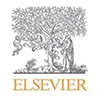Actions That Make a Real Difference in the Fight Against Climate Change
From global finance to the laboratory, hear about two very different ways universities can reduce their carbon emissions.
In this episode of the The Campus podcast, we talk to two experts—one in the U.S. and one in the U.K.—about open access, the global movement that aims to make research outputs available online immediately and without charge or restrictions. UNESCO defines open assess as free access to information and unrestricted use of electronic resources for everyone, and applies this definition to texts, data, software, audio, video and multimedia. The idea is that knowledge, and especially taxpayer-funded research, should be available beyond the confines of subscription-based journals for anyone to use, build on and benefit from.
It feels like a timely topic, with the U.K.’s Research Excellence Framework consultation on open access launching this month and the U.S. moving toward making all federally funded research available open access by the end of 2025.
Heather Joseph has been an advocate for knowledge sharing and the open access movement since its earliest days. She has been executive director of the Scholarly Publishing and Academic Resources Coalition since 2005 and is known for her policy work, leadership and international consultancy for organiZations such as UNESCO, the World Health Organization and the World Bank. In 2021, she won the Miles Conrad Award, the National Information Standards Organization’s recognition of lifetime achievement in the information community.
Steven Vidovicis the head of open research and publication practice at the University of Southampton in the U.K. A palaeontologist with a passion for scholarly communication and knowledge exchange for public benefit, he is also chair of the Directory of Open Access Journals advisory board, Southampton’s institutional lead for the U.K. Reproducibility Network, and a member of Jisc’s transitional agreement oversight group.
His previous articles for Campus explain open research and decode the labels of open-access publishing.
This episode is sponsored by Elsevier.

Listen to this podcast on Spotify, Apple podcasts or Google podcasts.
From global finance to the laboratory, hear about two very different ways universities can reduce their carbon emissions.
An expert in student belonging and engagement in the digital environment explains the nuances of belonging, mattering and inclusion as well as how to foster well-being in higher education.
Two academics who are steeped in policy expertise, having worked in government in the UK and US, share practical insights on what works when trying to get research before the eyes of decision-makers.
Hear academic leaders in the UK and Singapore discuss what is needed for effective cross-border collaboration.
4/5 Articles remaining
this month.